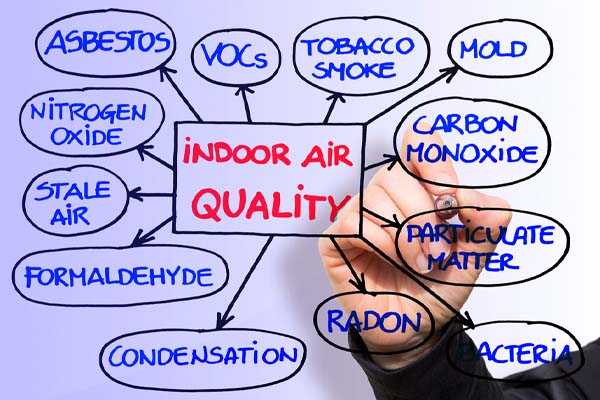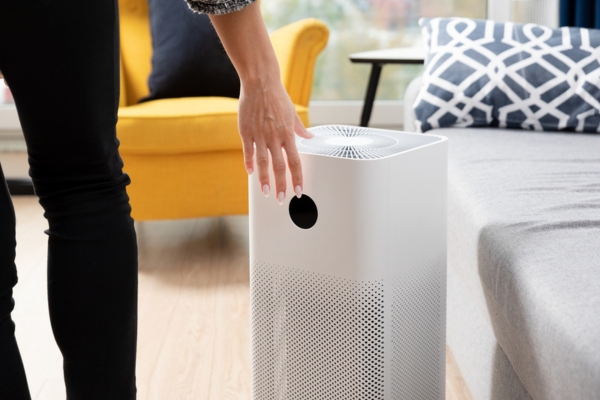Insulation for Allergen Reduction: Can Your Home Breathe Better?

Indoor air quality (IAQ) is essential for individuals seeking to create a safe and comfortable living environment. The quality of the air you breathe indoors can significantly impact your well-being, with poor indoor air quality linked to various health issues, including allergies and respiratory ailments.
While outdoor allergens are a concern, indoor air quality (IAQ) also significantly triggers uncomfortable symptoms and impacts overall well-being. Poor insulation can trigger or worsen allergy symptoms similar to those experienced during certain seasons, arising from sources such as mold, mildew, dust mites, or pests.
Fortunately, strategically installed, high-quality insulation can act as a barrier, filtering out airborne irritants like dust, pollen, and mold spores contributing to insulation allergies. In this article by Ascend Construction, we discuss how you can fight allergies with the help of insulation.
The Role of Insulation in Indoor Air Quality
Contents

Proper insulation is vital for maintaining a stable indoor environment by minimizing the infiltration of outdoor allergens. Below are some ways adequate insulation can help your IAQ.
- Insulation provides a stable indoor environment: Proper insulation helps maintain a consistent temperature and humidity level, benefiting people with allergies.
- Insulation helps minimize outdoor allergen infiltration: Insulation, when appropriately installed and coupled with air sealing, can reduce the entry of outdoor allergens like pollen, dust, and mold spores through gaps and cracks.
- Insulation materials act as a barrier against allergen entry: High-quality insulation creates a physical barrier within walls, floors, and ceilings, reducing the overall exposure to airborne allergens within the living space.
Various insulation materials are available, each impacting indoor air quality (IAQ). Common materials like fiberglass, cellulose, and foam insulation can contribute positively to IAQ when installed correctly, as they are less likely to harbor or attract dust, mold, and pests than older insulation types. Opting for insulation materials with low volatile organic compounds (VOCs) emissions further promotes healthier IAQ.
Effective installation methods and routine maintenance are essential for optimizing insulation’s effectiveness in minimizing allergen infiltration and improving IAQ. Regular inspection and upkeep help ensure that insulation continues to serve its purpose effectively, contributing to a healthier indoor environment.
Experience improved indoor air quality with Ascend Construction’s insulation solutions for a healthier home environment. Call us today!
Common Indoor Allergens & Their Sources
Common indoor allergens include dust mites, mold, pollen, and pet dander. Dust mites prefer and multiply in warm, humid environments and are usually found in bedding, upholstered furniture, and carpeting.
Molds thrive in moist environments such as bathrooms, kitchens, and basements. Pollen can enter indoor spaces from open windows and doors or stick on clothing and pets. Pet dander, comprised of tiny particles of skin shed by animals, may linger in the air and settle on surfaces.
Poor insulation exacerbates the presence of these allergens by allowing outdoor pollutants to infiltrate indoor spaces more efficiently. Allergens like pollen or mold spores can enter through the gaps and cracks in walls, floors, and ceilings.
Inadequate insulation also fails to regulate indoor humidity levels effectively, creating conditions conducive to dust mite proliferation and mold growth. Consequently, individuals with allergies may experience heightened insulation allergies symptoms when exposed to indoor allergens exacerbated by poor insulation.
Insulation Strategies for Allergen Reduction
Now that you understand the importance of insulation, below are some tips you can follow:
Sealing Air Leaks
Preventing outdoor allergens from infiltrating indoor spaces is crucial. Highlighting the significance of sealing air leaks in walls, floors, and ceilings can effectively minimize the entry points for allergens, helping to maintain a healthier indoor environment.
Choosing the Right Insulation

Selecting insulation materials that resist moisture and mold growth is essential for reducing allergen levels. Comparing insulation options based on their ability to deter allergen-harboring conditions can guide homeowners toward making informed choices conducive to allergen reduction.
Proper Insulation Installation
Stressing the importance of professional installation ensures that insulation is effectively deployed to reduce allergens. Trained installers can guarantee proper gap and crack sealing, maximizing the insulation’s efficiency in minimizing allergen infiltration and fostering healthier indoor air quality.
Elevate your living environment with Ascend Construction: schedule your expert insulation consultation today!
Additional Measures to Improve Indoor Air Quality

In addition to insulation, implementing complementary strategies further enhances allergen reduction and promotes healthier indoor air quality (IAQ). Suggestions include:
- Utilize air purifiers in indoor spaces to filter out airborne allergens effectively.
- Regularly maintain HVAC systems for proper ventilation and filtration.
- Control humidity levels to deter mold and dust mite growth.
Emphasizing a holistic approach to improving IAQ underscores the importance of addressing multiple factors simultaneously. While insulation significantly minimizes allergen infiltration, combining it with other measures like air purification and humidity control maximizes the effectiveness of allergen reduction efforts.
By adopting a comprehensive approach, you can create an indoor environment conducive to better respiratory health and overall well-being, ensuring you and your family can breathe cleaner air, experience fewer allergy episodes, and enjoy a healthier and more comfortable living space.
Improve your indoor air quality for peace of mind and comfort! Consult with experts from Ascend Construction for exceptional insulation solutions.
The Benefits of Investing in Quality Insulation
Investing in quality insulation for your home can enhance your home’s comfort and yield health benefits by effectively reducing indoor allergens. Proper insulation minimizes the infiltration of allergens such as dust mites, mold, and pollen. Eventually, you can notice a significant reduction in allergy symptoms.
By creating a barrier against these common indoor irritants, individuals experience improved respiratory health, fewer allergy-related complications, and overall well-being. Moreover, the advantages of quality insulation extend beyond health benefits to include substantial energy savings and increased comfort levels.
Well-insulated homes maintain more consistent indoor temperatures in different seasons or weather conditions, reducing the need for excessive heating or cooling. As a result, homeowners can expect lower energy bills and enjoy enhanced comfort with fewer drafts and temperature fluctuations. Additionally, the enhanced thermal efficiency of quality insulation can support environmental sustainability efforts due to reduced carbon emissions associated with energy consumption.
Quality insulation represents a wise long-term investment for homeowners, offering benefits ranging from improved indoor air quality and better health outcomes to substantial energy savings and increased comfort. By prioritizing insulation as part of home maintenance and improvement efforts, individuals can create a healthier, more comfortable living environment for themselves and their families while reducing their environmental footprint.
Conclusion
The importance of insulation cannot be overstated in the pursuit of a healthier, more allergen-free home environment. Quality insulation is crucial in minimizing the infiltration of allergens such as dust mites, mold, and pollen, promoting improved indoor air quality and reducing allergy symptoms. For homeowners looking at building or renovating projects, it’s essential to prioritize the quality of insulation and other indoor air quality improvement measures.
Take the first step towards a healthier home today. Contact Ascend Construction to know more about our services and how we can help you create the home of your dreams, meet quality standards for indoor air, and more.
Call Ascend Construction For Top-notch Insulation Services In Fort Collins, Colorado
When it comes to air sealing and upgrading your home’s insulation, seeking advice from a professional is crucial. However, not all professionals offer the same level of quality and pricing. It’s important to collaborate with the top experts in your locality. For residents in Fort Collins, Colorado, and nearby areas, Ascend Construction stands out as the premier choice.
Ascend Construction specializes in insulation removal and installation, air sealing, energy conservation, energy audits, whole-house fan installations, and more. Count on us to deliver unparalleled service that exceeds your expectations.

Contact Ascend Construction for a free consultation today. We can provide you with practical solutions to address the problem areas in your Fort Collins home. All of our services are affordable, and our work is guaranteed. Click here to contact us, or click the button below to give Ascend Construction a call. We offer free, no-obligation, in-home consultations.
Ascend Construction
4115 County Road 19
Fort Collins, CO, 80524
(970) 420-5495
Related Articles:
- Crawl Spaces & Attics: Navigating the Challenges of Unconventional Insulation Areas
- The Role of Insulation in Achieving a Net Zero Energy Home
- Insulation and Ventilation: Striking the Right Balance for Home Comfort
- The Hidden Benefits of Insulation Beyond Temperature Control
- How to Choose the Right Insulation for Your Colorado Home Renovation Project